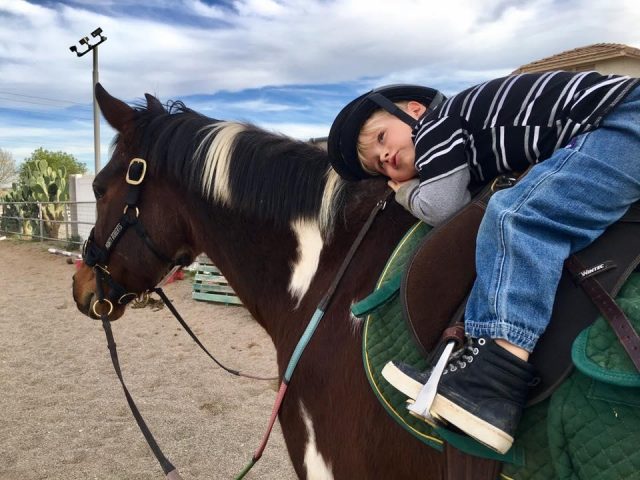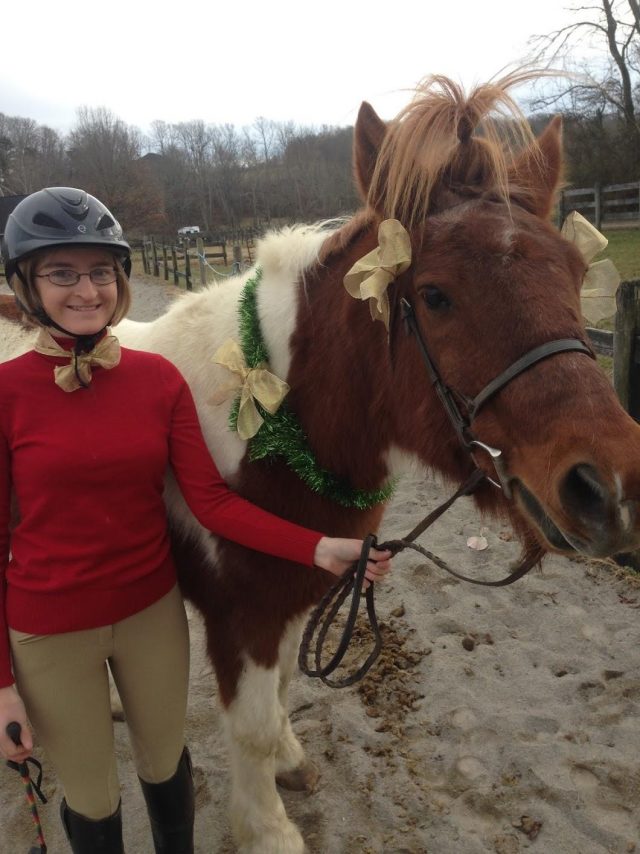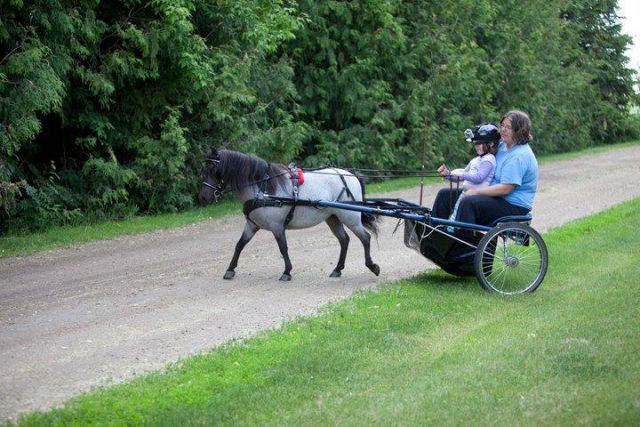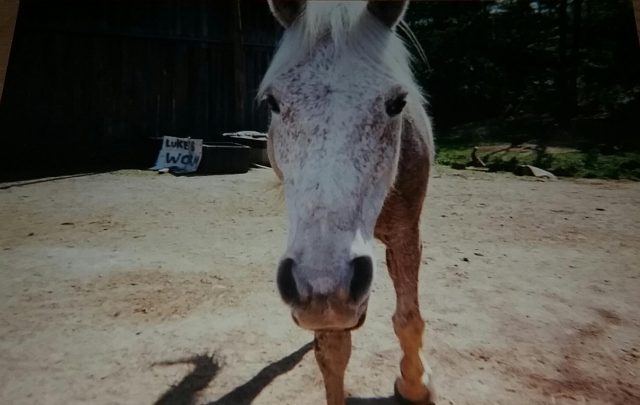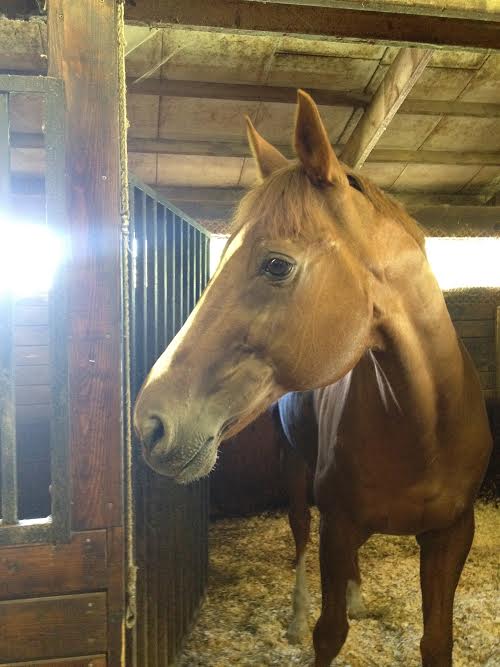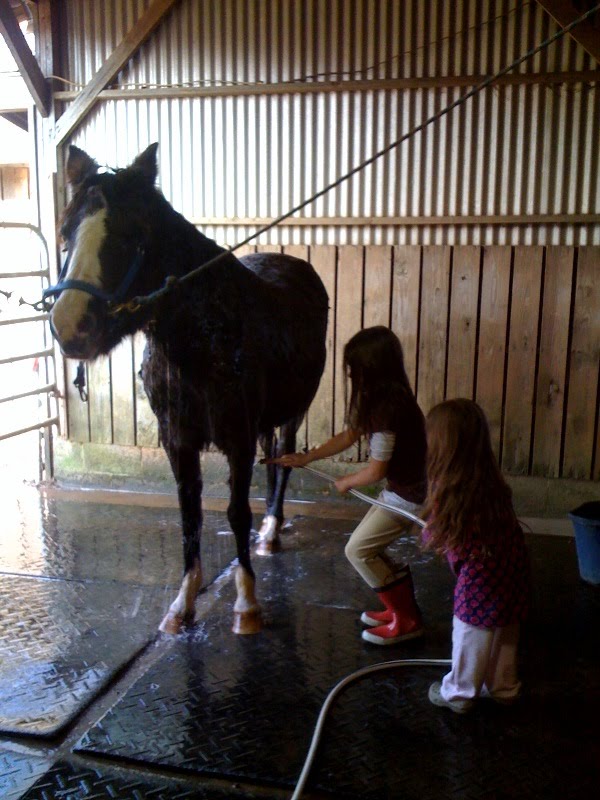#INTERNATIONAL LESSON HORSE DAY
International Lesson Horse Essay Winner: Chili
Jamie Jennings shares her story of a been-there-done-that former rodeo parade horse who became her lesson horse extraordinaire.
International Lesson Horse Day Essay Winner: Gryffindor
Kasey Minnick tells the story of Gryffin, her heart horse of a lifetime who wasn’t “supposed” to be a lesson horse but relished his new role in semi-retirement.
International Lesson Horse Day Essay Winner: Chessie
Ponies have so much love to give and so many lessons to teach: reader Anna Smith details her years with Chessie, a Chincoteague pony.
International Lesson Horse Day Essay Winner: Quinn
By Courtney Moss.
International Lesson Horse Day Essay Winner: Jamie
Lesson horses aren’t needed just for riders: meet Jamie, a miniature horse teaching beginner drivers the basics with reader Kendra Gale.
International Lesson Horse Day: HN Staff
The Horse Nation staff thanks the lesson horses in their lives!
Entries Close at Midnight for 2018 International Lesson Horse Day Essay Contest!
The 2018 International Lesson Horse Day will take place on May 24! Our annual essay contest to honor the special lesson horses in our lives is currently accepting entries: click here for all the details.
International Lesson Horse Day Essay Winner: Stella
Linda Watson-Call writes a beautiful tribute to a special therapy lesson horse named Stella who changed the lives of everyone around her.
International Lesson Horse Day Essay Winner: Cinema
By reader Angela Masucci.
International Lesson Horse Day Essay Winner: Loosie
“Loosie was my equine mother. She taught and disciplined me. She jumped and danced with me.” Horse Nation reader Lorelei Joleigh Deaton pens a heartfelt thank-you to her beloved Appaloosa pony mare who taught her so much.
International Lesson Horse Day: HN Staff
The writing staff reflects on the lesson horses in their lives.
10 Off-the-Wall Ways to Thank Your Lesson Horse
Bessy the lesson horse gives us the inside track on everything your lesson horse wants but is too nice to demand!
An Open Letter to My Former Teaching Partners
Kristen Kovatch, formerly a western riding instructor, trainer and coach, thanks the horses who taught her students more than she ever could.
To my former teaching partners, the twenty-to-thirty horse herd who taught not only class after class of my students, but me as well:
There is no single definition of “lesson pony.” Perhaps we think of the gray-in-the-face old horse with the slight arthritis but a spark in his eye that jogs endless circles so carefully; maybe we envision a fat little pony with equal portions of sass and solidity who pops over tiny crossrails much to the delight of his wee rider.
Really, few of you fit either of these stereotypes: you were once, perhaps, the top of your game — sliding stops from here to the horizon, or flawless flying changes in the big ring at the Congress. You came with papers and pedigrees and performance records, all by donation — because that’s how most of these collegiate programs work. Perhaps you were a little creaky with age, not quite up to your old standards but with plenty of years left in you to teach another generation, the perfect bridge between a youth lesson horse and a show animal, helping your riders themselves transition from children to adults in a college setting.
What a mixed bag we had to teach: phys ed college courses ranging from total beginners to advanced reining and training classes; college team practices to help our students prepare to get on horse “cold” with no practice time; private lessons for community members and our high school team. You did it all, and some of you worked in every single one of these levels.
I would stand in the arena and watch you circle me, wondering if these students on your back would ever truly appreciate what you were. I tried my best to impart a sense of your previous accomplishments upon my sometimes less-than-interested riders. I learned patience from you, as you tolerated some young gun who was pretty sure they knew a lot more about riding horses than I did, and believed it was their job to try to teach you a thing or two — you, a horse who had seen more show pens than all of us combined.
And truthfully, some of them probably did know more than me — who was I, a bright-eyed young graduate, to stand in an arena and shout instructions at a group of riders who were until just a few months prior my peers, not my students? There were plenty of days when I wanted to give up on this professional thing, and I probably told some of you horses all about it. I’m sure those weren’t the only secrets you were keeping for us: for every student that wound up spilling their heart to me in my office, there were likely plenty more whispering or crying into your manes in the barn aisle. I thank you for that.
You carried my team on your backs and you carried me too, showing me what was right and what was wrong, suffering silently through some terrible lessons as I formed my program and worked so hard to learn how best to keep you mentally and physically sound. You always came first in that program, much to the chagrin, I am sure, of students who wished I would let them treat you like a playground, an endless carousel of circles and maneuvers and transitions — not the way, I believed, to learning good horsemanship.
The lessons you taught my students were numerous indeed, but the lessons you taught me are immeasurable. There are the various sundry lessons all instructors learn: 45 ways to say the same thing, in the hopes that one of those ways will make sense to your student; how to discern in a split-second glance if you needed a little time on the lunge line before your nervous rider mounted up; when a certain number of repetitions were truly enough.
But there were plenty of less-quantifiable lessons as well: I learned that sometimes the most important thing a human can do for a horse is simply be there by their side as they leave this world; I learned that it is a rare mistake that is truly the horse’s fault. You kept me honest and you taught me integrity. You reminded me to always put the horse first.
To my former teaching partners, thank you for everything you taught my students. And thank you for everything you taught me.






